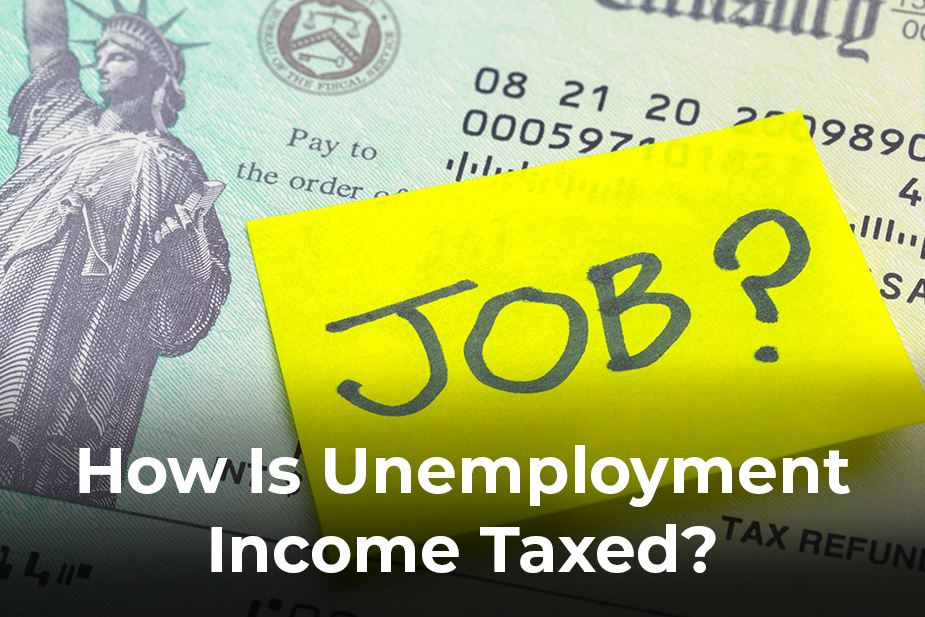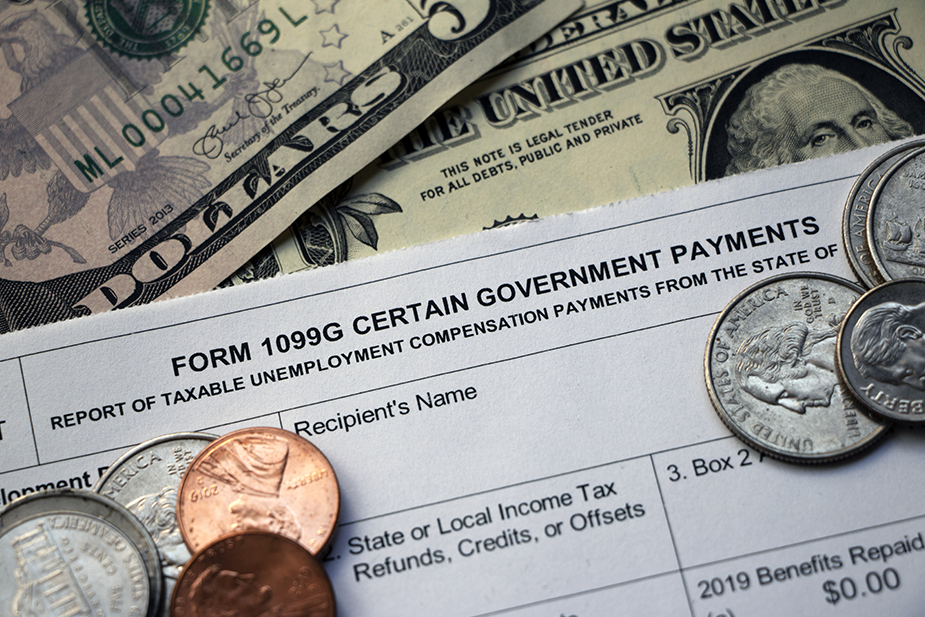2020 was a difficult financial year for many Americans. In April, the unemployment rate skyrocketed to an historic high, 14.7%. By December, the rate had lowered to 6.7%. while that is an improvement, it means that 10.7 million Americans are still drawing unemployment.
If you collected unemployment in 2020, you may be concerned about what this will mean for your 2020 taxes.
Here’s what you can expect.

How Is Unemployment Income Taxed?
Unemployment income is taxable, and you should include the payments you received as part of your earnings for the year. Be sure to include any income you received from working, including temporary jobs.
The IRS will send you a Form 1099-G at the beginning of the year. This form shows the total amount of unemployment income you received. Include the data on this form as part of your annual income when you’re filling-out your return.

What Can I Do to Make Tax Time Easier?
- Have federal taxes taken out of your checks
One way to ease your burden during tax time is to have federal taxes withheld from your unemployment checks. You can choose to have up to 10% of your payments set aside. This mitigates the risk that you will owe money come tax season. Fill out a Form W-4V Voluntary Withholding Request and submit it to the agency paying your benefits.
Once you find a new job, you may want to continue withholding a portion of your checks. You can reserve a specific dollar amount or a percentage of each check to send directly to Uncle Sam. If you ask the government to hang onto too much, good news – you’ll get it back as a tax refund when you file in April.
- Make estimated tax payments
Additionally, you can pay estimated taxes throughout the fiscal year. First- and second-quarter payments are due each year on July 15th, third-quarter payments are due September 15th, and fourth-quarter is due January 15th. Paying estimated taxes will spread your tax burden throughout the year so you aren’t shocked by a large lump-sum due in April. - Take advantage of credits and deductions
Some tax credits and deductions are available to certain tax brackets. If your income was significantly lower in 2020 than in the past, you may now qualify for those deductions. Examples include the Earned Income Tax Credit, The Saver’s Credit, and the Qualified Performing Artist Deduction.
Additionally, if you become responsible for paying for your own health insurance coverage when you lost your job, you will likely be able to deduct that cost from your 2021 taxes. Insurance premiums, COBRA costs, and medical expenses should be itemized on a Schedule A. If your medical expenses exceeded 10% of your adjusted gross income, they will be deducted from your total due.

Ask a San Rafael Tax Expert
Taxes can be overwhelming, even in the best of years. If you drew unemployment in 2020, you may want a tax professional to review your finances.
That’s why we are here to help you. Schedule your free consultation now and see how we can make sense of your 2020 tax year.
- Preparing Your Tax Documents - February 1, 2024
- Making of a Successful Team Environment - December 31, 2023
- Got a Mistake on Your Tax Returns? - September 3, 2023

